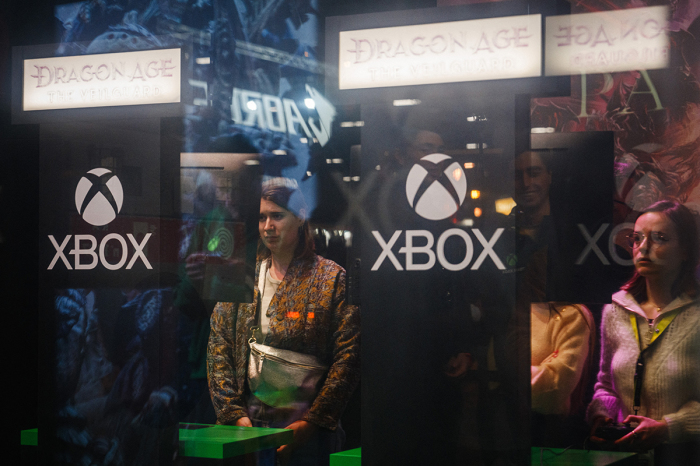
The latest entry in the fantasy role-playing franchise “Dragon Age” allows players to make their character trans-identifying and features a scene where one character is forced to atone for “misgendering” someone by performing a series of push-ups.
“Dragon Age: The Veilguard” is the fourth installment in a video game franchise released by Electronic Arts that started in 2009 with the release of “Dragon Age: Origins.”
One of the game’s developers, BioWare, announced the launch of the latest chapter in the “Dragon Age” series on Halloween, explaining that they “cannot wait to see the deeply personalized characters you’ll create, the inventive ways you’ll combat your foes, and the decisions you’ll make that shape your adventure.”
“And of course we’re eager to hear of the relationships you’ll form with your companions along the way,” Busche continued.
Prior to the game’s release, Vice reported that the latest “Dragon Age” game would allow players to create a trans-identifying character.
According to a screenshot from an X user, trans-identifying characters will have specific dialogue options relating to their chosen gender identity. These dialogue options include things like “I love who I am,” “Feels good to see the real me,” and “I’m getting there.”
BioWare and Electronic Arts did not respond to The Christian Post’s request for comment.
While some gamers and media outlets praised the move, others felt that the developers sacrificed player immersion to promote a political message. Erik Kain, a senior contributor to Forbes, asserted that today’s video games and media tend to address current issues with a “heavy-handed, top-down approach.”
“It’s a real shame that the developers at BioWare decided to go this route in ‘Dragon Age: The Veilguard,’” Kain wrote.
The writer stated that he was fine with developers providing players the option to make their character trans-identifying, which he noted most video games are doing nowadays. However, Kain took issue with a scene he said many critics have condemned as “woke.”
In the scene, a character named Isabela “misgenders” someone named Taash, who identifies as non-binary. Isabela then atones for this by walking over to a spot in the tavern and performing a series of push-ups.
“There is a better, more subtle way to include a trans character in your fantasy game that does not involve a performative apology and a lecture using parlance that has no place in a game like this,” Kain stated in an X post on Halloween that included a video of the scene.
“This is basically self-parody. It’s a shame because the game is, imo, still quite fun,” he added.
The latest release in the “Dragon Age” franchise is not the first video game to attract headlines in recent years for pushing LGBT messaging.
Last year, the creators of “The Sims 4,” the fourth entry in a series of life simulation games, announced a new feature that would allow players to express themselves and “customize every detail.”
The new features included the ability to add so-called “medical wearables” such as breast “binders,” which are worn by girls who identify as boys to flatten their chests. In addition, players could have their characters wear shapewear that creates a bulge in underwear so a female who identifies as male could look like she has male genitalia. Another feature allowed players to give their characters a “top surgery scar” to signify breast removal.
In May, the remake of the Nintendo game “Paper Mario: The Thousand-Year Door” also received media attention for including dialogue that makes it clear the character Vivian identifies as trans. The dialogue had been removed in the original U.S. version of the game.
Samantha Kamman is a reporter for The Christian Post. She can be reached at: samantha.kamman@christianpost.com. Follow her on Twitter: @Samantha_Kamman







